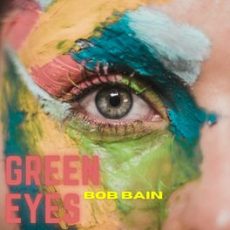
Daily Dose Of Jazz…
Bob Bain was born January 26, 1924 in Chicago, Illinois and began his professional career in the 1940s playing guitar in popular big band outfits led by Tommy Dorsey and Bob Crosby. He is credited with guitar on one of Dorsey’s biggest hits, Opus No. 1.
An unusually early adopter of the electric guitar, Bob started playing an early Gibson Les Paul model before switching to a modified 1953 Fender Telecaster. Like most jazz guitarists, he also favoured semi-acoustic models such as the Gibson L-5 and ES-150.
A long time collaborator with composer Henry Mancini, he is also credited with the guitar introduction to the theme from the popular 1950s television private detective series Peter Gunn. Bain contributed his guitar talents on another of Mancini’s significant soundtrack albums, the musical score to the movie Breakfast at Tiffany’s, as well as playing on the soundtrack to the television Western series Bonanza.
Guitarist Bob Bain, who was mainly known for his film music contributions, including Dr. Zhivago, where he played the balalaika in the score for certain scenes where Lara’s Theme is heard, died on June 21, 2018 in Oxnard, California. He was 94.
More Posts: guitar,history,instrumental,jazz,music
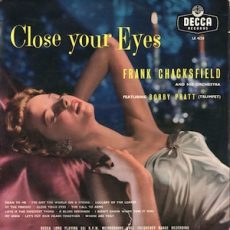
Daily Dose Of Jazz…
Robert Stuart Pratt was born on January 24, 1927 in Aberdeen, Scotland and was a professional musician from the age of 16, having mastered trumpet, flugelhorn, piano, drums and vocals. He served in the Royal Corps of Signals leading the Skyliners Army Dance Band.
In 1948 he joined Ken McIntosh’s outfit for a year before joining Ted Heath the following year. Due to his ability to play high and loud brought distinction to the brass section and his high note duets with Bert Ezzard became a highlight of the band’s appearances. Bobby was a mainstay with Heath until 1960.
As one of the busiest session players in Britain, Pratt found himself in high demand not only for jazz big band work but consistent work with top jazz and pop perfprmers in both record, tv and film studios. He played in the big bands of Humphrey Littelton, Eddie Harvey, Tubby Hayes, Tommy Watts, Vic Feldman, Jack Parnell, the Forty Two Big Band and the Downbeat Big Band.
Over the course of his career Bobby also recorded as a member of the Tommy Whittle Septet, The Kirchin Band, the Johnny Keating All Stars, Frank Chacksfield and Kenny Baker’s Dozen.
Trumpeter Bobby Pratt committed suicide on June 5, 1968 at the age of 41.
More Posts: drums,flugelhorn,history,instrumental,jazz,music,piano,trumpet,vocal
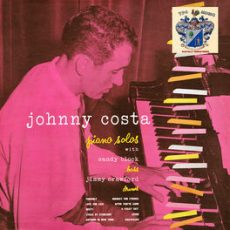
Daily Dose Of Jazz…
Sandy Block was born on January 16, 1917 in Cleveland, Ohio. Growing up in Cleveland and Brooklyn, New York he played violin as a child. He picked up the bass in high school and worked professionally in big bands from the late 1930s.
Block worked with Van Alexander, Chick Webb, Alvino Rey, and Tommy Dorsey. He recorded with Louis Armstrong and Ella Fitzgerald. He played with Charlie Parker on the only television appearance Parker ever made.
After the 1950s Sandy worked extensively as a studio musician, including with folk ensembles such as The Greenbriar Boys. He played with Jimmy McPartland and Johnny Costa, but went into semi-retirement after the 1960s.
Bassist Sandy Block, who was also credited as Sid Block, died on October 1, 1985.
More Posts: bass,history,instrumental,jazz,music
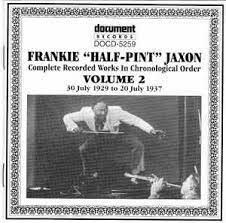
Daily Dose Of Jazz…
David A. Young was born January 14, 1912 in Nashville, Tennessee but was raised in Chicago, Illinois. There he joined a band made up of newsboys from the Chicago Defender.
In the 1930s he worked in the bands of Frankie Half Pint Jaxon, Fletcher Henderson, Carroll Dickerson, and Roy Eldridge. He was with Horace Henderson in 1939-1940.
During World War II worked with Walter Fuller, Lucky Millinder, and Sammy Price. He was drafted into the U.S. Navy in 1944 and played in a military band until the end of the war. After his discharge Dave returned to Chicago and played with Dinah Washington.
The 1950s had Young leaving his career in music and returning to working for the Chicago Defender, this time as an advertising executive.
Tenor saxophonist Dave Young died on December 25, 1992.
More Posts: history,instrumental,jazz,music,saxophone
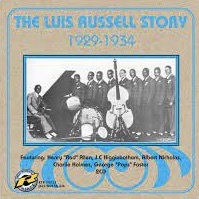
Daily Dose Of Jazz…
Otis Johnson was born on January 13, 1908 in Richmond, Virginia. He began his career in the late 1920s, working with Gene Rodgers, Henri Saparo, Eugene Kennedy, and Charlie Skeete. In 1929 he joined Luis Russell’s band, and rejoined Kennedy’s group before working with Benny Carter in 1934. He played with Charlie Turner and Willie Bryant in the mid-1930s.
Toward the end of the decade he performed with Louis Armstrong and Don Redman. On December 30, 1940 Otis enlisted in the 369th Coast Artillery of the New York Army National Guard. He was discharged on October 13, 1945.
Trumpeter Otis Johnson, who never returned to active performance after leaving the military, died on February 28, 1994.
More Posts: history,instrumental,jazz,music,trumpet


